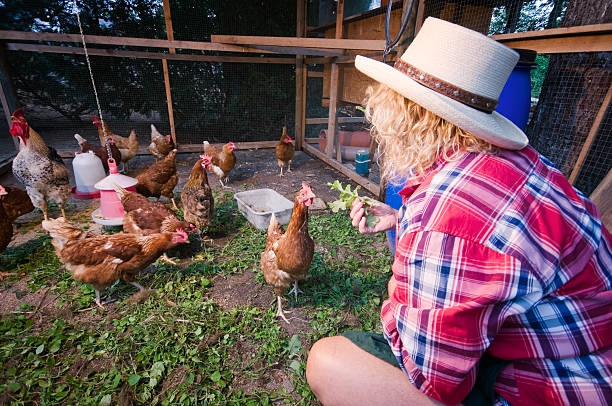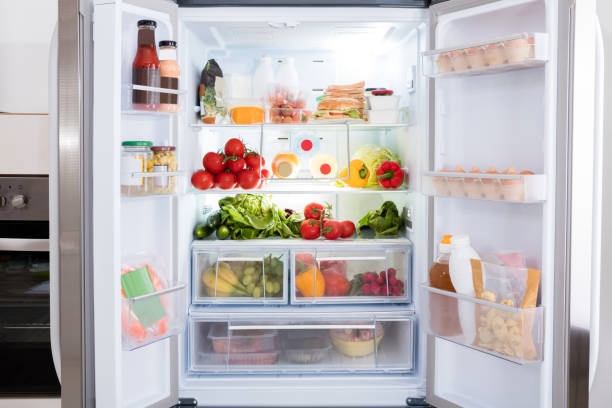How to Eat Healthy on a Low Budget in Nigeria

Eating healthy in Nigeria can sometimes feel like a luxury. Prices of fruits, vegetables, fish, lean meat, and even grains keep rising, making many people think that healthy food is only for the rich.
But the truth is, you don’t have to spend heavily to maintain a balanced diet. With the right choices, you can enjoy nutritious and satisfying meals without straining your pocket.
By applying a few smart strategies, it’s possible to prepare meals that are both affordable and nourishing. From shopping in bulk, choosing local alternatives, to replacing expensive ingredients with cheaper but equally healthy options, you’ll realize that eating well on a budget is very achievable.
So, how can you make this work in your daily life? In this guide, we’ll walk you through 13 practical and easy tips for eating healthy in Nigeria without overspending.
13 HELPFUL TIPS FOR EATING HEALTHY WITH A TIGHT BUDGET IN NIGERIA
1. Shop Early or Late for Better Deals
One of the smartest ways to save money in Nigerian markets is by choosing the right time to buy food. Prices are usually more flexible early in the morning (before 9 AM) or late in the evening (after 6 PM).
- In the morning, sellers want to attract their first customers, so they’re more willing to give discounts.
- In the evening, most traders prefer to sell off their remaining stock rather than take it home, which makes them open to negotiation.
Shopping at these times doesn’t just save you money — it also helps you get fresher items, especially vegetables and fruits that arrive from farms overnight. Plus, early shopping means you avoid the midday heat and the heavy market crowd.
So, if you’re trying to stretch your budget while still eating healthy, consider planning your grocery trips around these hours. That little adjustment can make a big difference in your food expenses.
2. Buy Food in Bulk from Local Markets

One of the easiest ways to cut down on food expenses in Nigeria is to buy in bulk. Most local markets reward bigger purchases with better prices. For example, instead of buying rice or beans in small “custard rubbers,” you’ll save more if you go for a paint bucket, half bag, or even a full bag. The same tip applies to staples like garri, yam, and even dried fish.
Buying in bulk also reduces how often you visit the market, which means you spend less on transport and save valuable time. If storage space is a challenge, consider pooling money with friends or family. You can buy larger quantities together and then share them, so everyone benefits from the cheaper rate.
For even bigger savings, shop at major wholesale markets such as Mile 12 in Lagos, Bodija in Ibadan, or Ogbete in Enugu. These markets usually sell fresher produce at much lower prices compared to smaller neighborhood shops.
Making bulk buying a habit is a smart way to keep your meals healthy and affordable without stretching your budget.
3. Cook at Home and Plan Ahead
Eating out might be convenient, but it often costs far more than preparing meals yourself. For example, the amount you spend on a single restaurant meal — say ₦3,500 — could cover the ingredients for several home-cooked meals that last days.
Cooking at home doesn’t mean you need to be in the kitchen every day. With a little planning, you can reduce stress and save money. Try cooking large portions of staple meals like jollof rice, beans, or soups, and store them in your fridge or freezer. You can also prep ahead by washing and chopping vegetables, blending tomato and pepper mixes, or seasoning meat for quick cooking later.
This habit not only saves money but also ensures you’re eating healthier meals made from fresh ingredients. Plus, you’ll avoid the last-minute temptation of buying expensive fast food when you’re hungry.
4. Create a Simple Food Timetable
One of the easiest ways to eat healthy on a budget in Nigeria is by planning your meals ahead of time. Instead of buying food randomly every day, dedicate one day each week to map out what you’ll eat for the coming days.
Start by creating a simple food timetable. List out the meals you want for breakfast, lunch, and dinner throughout the week. Once that’s done, write a shopping list that covers all the ingredients you’ll need. The key is to stick strictly to your list when you go to the market — this helps you avoid impulse buying and overspending.
By having a food timetable, you’ll not only cut costs but also ensure you’re eating balanced meals regularly. It also saves time and reduces the stress of thinking about what to cook every day. In the long run, it keeps you disciplined, healthier, and financially wiser.
5. Keep a Small Backyard Poultry

One simple way to cut down the money spent on meat and eggs is by raising a few animals at home. A small free-range poultry setup in your backyard can go a long way. With just a few hens, you’ll have a steady supply of eggs, and as they multiply, you can also use them for meat.
If space allows, you can even add other small livestock such as goats, turkeys, or pigs. Over time, these animals not only provide food for your family but can also become an extra source of income when they reproduce.
This small step reduces the pressure of buying protein every week from the market and makes it easier for your family to enjoy meat and eggs regularly at a lower cost.
6. Grow a Small Backyard Garden

Another great way to cut food costs is by growing some of your own produce. You don’t need a large space — even a small corner in your compound, balcony, or a few containers can do the job. With a little effort, you can cultivate vegetables and fruits like tomatoes, spinach (ugu), peppers, okra, or even watermelons and pineapples.
Imagine how convenient it would be to step into your backyard and harvest fresh tomatoes or green leaves instead of rushing to the market. Besides saving money, home gardening gives you access to healthier, chemical-free produce and the joy of eating what you grow with your own hands.
Even if space is limited, you can try container gardening using buckets, sacks, or old tires. It’s affordable, sustainable, and a smart way to support your budget-friendly eating plan.
7. Invest in a Fridge

If you truly want to save money while eating healthy, a fridge is one of the best investments you can make. Without proper storage, food spoils quickly, and throwing away spoiled food is like throwing away money.
Having a fridge allows you to cook in bulk, store leftovers safely, and keep fresh produce, meat, and fish for longer. This way, your weekend meal preps can last throughout the week without losing quality. Even fruits and vegetables stay fresher, reducing the number of market runs you need to make.
If you don’t own a fridge yet, consider setting aside money gradually to buy one. It may feel like a big expense at first, but in the long run, it pays for itself by helping you save on food waste and constant eating out.
Also Read: How to Store Fresh Produce Without a Fridge
8. Prepare Your Own Snacks and Drinks

Many people overlook this, but making your snacks and drinks at home is one of the smartest ways to save money and eat healthier in Nigeria. Instead of buying processed or overpriced snacks outside, you can prepare simple options at home and store them for the week.
For example, bake some coconut cupcakes and pack them individually in zip-lock bags for quick grab-and-go snacks. You can also fry or bake chin chin, plantain chips, or potato chips and keep them airtight to stay fresh.
When it comes to drinks, homemade options are not only cheaper but also healthier. Try blending smoothies, preparing zobo, or making soya milk and keeping them chilled in the freezer. Packing a bottle of zobo alongside a small pack of homemade chips for work can help you cut daily expenses while still enjoying something tasty.
This simple habit may look small, but over time it saves you money and keeps you in control of what you eat — that’s real wisdom for healthy living on a budget.
Also Read: How to Make Zobo Drink with Pineapple and Ginger (Nigerian Recipe)
9. Take Packed Lunch to Work

Buying food at the office or on the road every day may feel convenient, but it slowly drains your pocket. For example, spending just ₦300 daily on amala or rice at a canteen adds up to over ₦1,500 a week — money that could have been saved or used for something more important.
A smarter option is to pack your lunch from home, even if it’s something simple. Meals like jollof rice, beans, yam porridge, or even sandwiches can be prepared in the morning or the night before and taken along in a food flask. This way, you spend less, eat healthier, and stay in control of what goes into your body.
Over time, carrying lunch from home will not only save you thousands of naira but also help you maintain a consistent, balanced diet.
10. Eat Fruits in Moderation

Fruits are essential for a healthy diet, but the way we consume them matters a lot. In Nigeria, it’s common to finish an entire bunch of bananas in one sitting, eat several mangoes at once, or slice through a whole watermelon in a single day. While fruits are healthy, this approach is not the most economical or sustainable.
A smarter way is to eat fruits in moderation. Instead of finishing everything at once, portion them and save the rest for the next day. For instance, you can eat one or two bananas today and keep the remaining for tomorrow, or cut your watermelon into small slices and refrigerate.
By spreading out your fruit consumption, you not only get to enjoy fresh vitamins and minerals daily, but you also make your fruits last longer — saving money while still maintaining a healthy diet.
11. Choose Healthier Cooking Methods
The way you cook your meals affects not just your health but also how much you spend on food. If your goal is to eat healthy while staying on a budget, it’s best to focus on cooking methods that use less oil and fewer costly ingredients.
Instead of always frying, try steaming, grilling, or boiling your food. For example, boiled plantain or grilled chicken can be just as filling as fried versions, but they’re lighter, healthier, and more affordable. You’ll also cut down on the amount of cooking oil you use, which helps reduce both expenses and excess calories.
By choosing healthier cooking methods, you’ll get meals that are nutritious, cost-effective, and easier on your body — a win-win for anyone trying to stay fit and save money in Nigeria.
12. Make the Most of Leftovers
Food waste is one of the easiest ways to lose money in the kitchen. Instead of throwing food away, you can turn leftovers into new, tasty meals. That cold rice in your fridge doesn’t have to go to waste — simply reheat it with a fresh sauce or stir-fry it with vegetables, and you have another delicious meal.
Even leftover eba can be repurposed. Break it into small pieces in a pot, add water, let it boil, then sprinkle in some fresh garri. Within minutes, you’ll have a fresh serving of eba for the family.
The key is to be creative with what you already have. By reusing and reinventing your leftovers, you save money, reduce waste, and still enjoy satisfying meals without extra spending.
13. Cut Down on Highly Processed Foods
Packaged foods such as instant noodles, biscuits, and sugary soft drinks may look affordable, but in reality, they cost you more — both financially and health-wise. While they can make you feel full for a short time, they provide very little nutrition and are often loaded with excess sugar, unhealthy fats, and artificial additives that can harm your health over time.
A smarter alternative is to choose natural and whole foods. Staples like rice, beans, lentils, and fresh vegetables are not only nutrient-dense but also keep you satisfied for longer. They’re budget-friendly, easy to prepare, and support your body with the vitamins and minerals it needs.
Instead of buying carbonated or sugary drinks, you can also make refreshing local options at home. Drinks like zobo, kunu, and tigernut milk are healthier, cost-effective, and packed with natural goodness.
By avoiding highly processed foods, you’ll be saving money, protecting your health, and getting better value from every meal you eat.
Affordable Healthy Nigerian Meal Timetable
Planning your meals ahead of time is one of the smartest ways to eat healthy without spending too much. Whether you’re a student, single, or running a family household, a food timetable helps you stay organized, reduce waste, and avoid overspending at the market. Below is a sample 7-day low-cost Nigerian meal plan filled with simple, nutritious, and pocket-friendly ideas.
7-Day Low-Budget Nigerian Meal Plan
| Day | Breakfast | Lunch | Snacks | Dinner |
|---|---|---|---|---|
| Monday | Pap with moi moi or akara | Rice with vegetable sauce (can be leftovers) | Boiled groundnuts | Fish pepper soup |
| Tuesday | Beans (ewa agoyin) with bread or beans porridge with corn | Okra soup with snails (locally sourced) and pounded yam | Homemade plantain chips with tigernut drink | Fresh fruit salad |
| Wednesday | Fried potatoes with vegetable sauce | Jollof rice mixed with beans | Kuli kuli | Okpa with homemade zobo |
| Thursday | Pap with fried egg and boiled potatoes | Yam with vegetable sauce (using palm oil, crayfish, and onions) | Cashew nuts with soy milk | Roasted or boiled corn with pear or coconut |
| Friday | Masa (Hausa rice cake) with sauce or light soup | Bitterleaf soup with mushrooms and fufu or Amala with Ewedu and Gbegiri | Boiled egg with pear | Yam and vegetable porridge |
| Saturday | Cocoyam with stew or agidi (eko/maize pudding) with stew | Abacha (African salad) | Homemade suya with coconut water | soup with tuwo swallow |
| Sunday | Unripe plantain porridge with fresh or dry fish | Jollof rice (local rice) with carrot stew | Dates with coconut | Yam and beans porridge or akidi (local legume dish) |
These meals are affordable, filling, and can be adjusted to suit your budget. You don’t need to spend much — simply buy seasonal ingredients, prepare meals in portions, and store them properly. Over time, this habit saves you money, reduces stress, and keeps your diet balanced.
Also Read: How to Cook Egusi Soup Without Palm Oil (Healthy Nigerian Recipe)
Conclusion
Eating healthy in Nigeria doesn’t have to drain your pocket. With the right strategies — from shopping smart, cooking at home, storing food properly, to choosing local alternatives — you can enjoy balanced and nutritious meals every day without overspending.
The secret is planning ahead, reducing waste, and making the most of what you already have. Whether it’s preparing your own snacks, growing a small garden, or creating a simple food timetable, these small habits add up to big savings while keeping your body nourished.
Remember, healthy eating is not about expensive diets — it’s about wise choices. Start applying these tips today, and you’ll see that it’s possible to eat healthy on a low budget in Nigeria and still enjoy delicious, satisfying meals.
👉 Do you have more budget-friendly food tips? Share them in the comments below — your idea might inspire someone else!
Frequently Asked Questions (FAQs)
1. How can I eat healthy with little money in Nigeria?
Eating healthy on a low budget in Nigeria is possible if you apply smart strategies. Start by shopping at local markets early in the morning or late in the evening when prices are cheaper. Buy food items in bulk to reduce costs, and focus on locally available foods such as beans, yam, garri, rice, and vegetables. Cooking at home also helps you save money while controlling the quality of your meals. Meal planning, preparing snacks and drinks at home, and storing food properly in a fridge are simple ways to stretch your budget and still eat balanced, nutritious meals daily.
2. What are the cheapest healthy Nigerian foods?
Nigeria has many affordable yet nutritious foods you can enjoy. Staples like beans, yam, potatoes, garri, and maize are cheap and filling. Vegetables such as spinach (ugu), waterleaf, okra, and pumpkin leaves are packed with vitamins and cost far less than imported vegetables. For protein, local options like eggs, groundnuts, dried fish, and beans are cheaper than beef or chicken but still highly nutritious. Fruits like pawpaw, banana, oranges, and watermelon are affordable when bought in season, making them great for a healthy, low-cost diet.
3. Is it cheaper to cook at home in Nigeria?
Yes, cooking at home is far cheaper and healthier than eating out. For example, with ₦3,000, you can prepare a pot of beans or jollof rice that can last a family for two to three days. The same amount of money might only cover one or two restaurant meals. Cooking at home also gives you full control of ingredients, making your meals healthier since you can reduce excess oil, salt, or seasoning cubes. With proper planning and storage, cooking at home saves money, reduces food waste, and ensures a consistent supply of healthy meals.
4. How can students eat healthy on a low budget in Nigeria?
Students can maintain a healthy diet without spending much by cooking simple meals like beans porridge, rice with vegetables, or yam porridge. Instead of buying fast food every day, students should meal prep on weekends and store food in containers or flasks. Buying snacks in bulk, like groundnuts, kuli-kuli, or homemade chin-chin, also saves money. Creating a food timetable helps students avoid impulse buying and ensures they eat balanced meals regularly. With discipline, students can eat healthy even with a tight allowance.
5. What is a low-budget Nigerian food timetable?
A low-budget Nigerian food timetable is a weekly meal plan designed to help you eat healthy while spending less. For example, you can start your day with pap and akara, have beans or yam porridge for lunch, snack on boiled groundnuts or fruits, and prepare okra or vegetable soup with swallow for dinner. Planning meals ahead ensures you buy only what you need, reduces waste, and helps you stick to affordable options. By following a food timetable, you’ll not only save money but also maintain a balanced and nutritious diet without stress.
